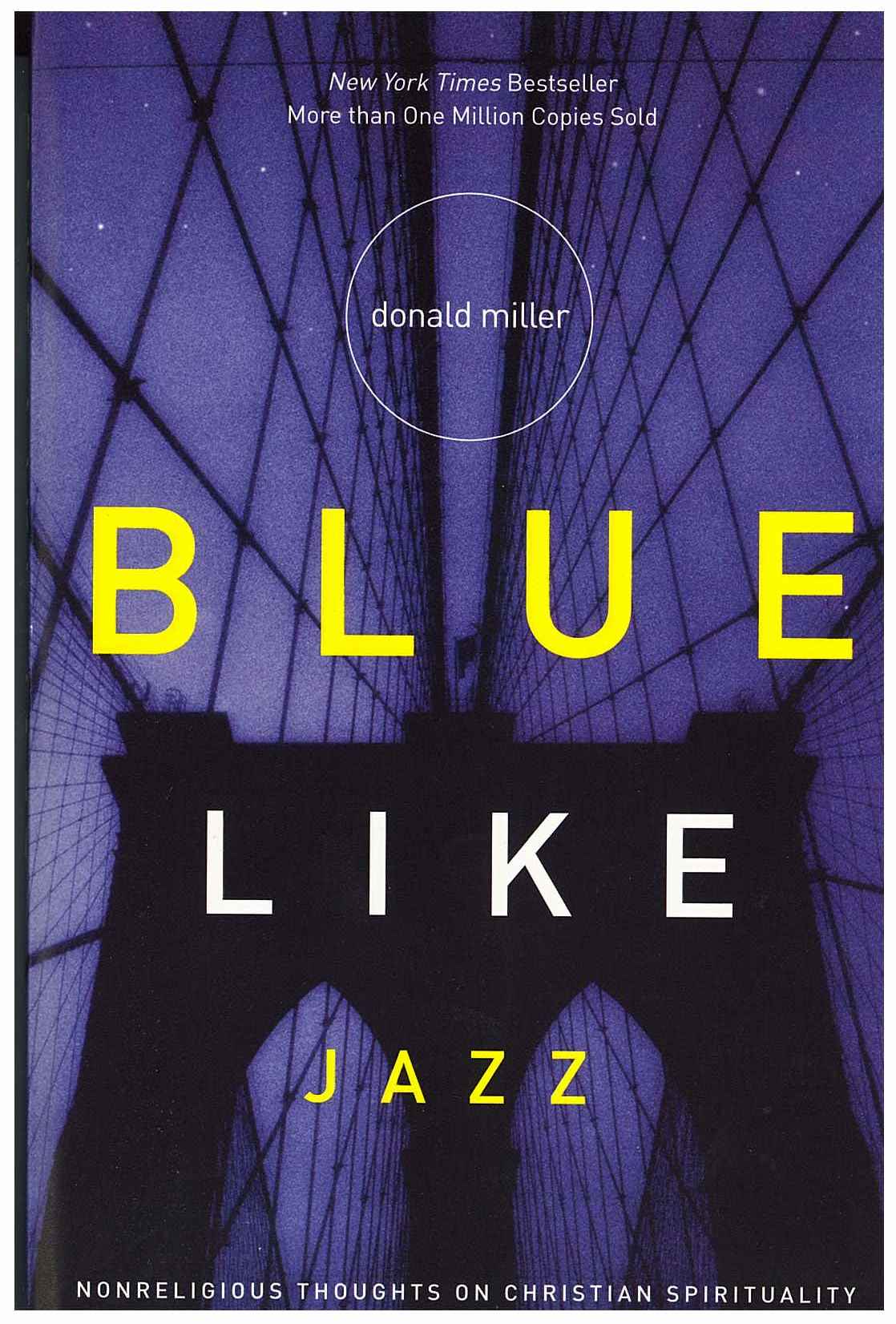I finally got around to reading (or at least listening to) Blue Like Jazz: Nonreligious thoughts on Christian spirituality (2003), a book that was fairly popular in my social circles over the last several years since the author, Donald Miller, is from Portland, OR and is an Evangelical Christian who writes about social activism. I hadn't read the book before, partially because it was so popular and trendy, so I thought it was ironic that he makes fun of Trendy Author (or, really, himself because he was judging Trendy Author), a Northwest author who writes about fishing and gave a reading at Powell's (one can surmise it's David James Duncan, except that he said the author is an Oregonian, and Duncan is a Montanan). At any rate, I think I kind of wrote off Blue Like Jazz in a similar way to the criticism Miller has of Trendy Author: that from what I heard, he was spouting a version of Christianity with just the right amount of edginess to get Evangelical Christians to think they're getting out of their comfort zones into something exciting.
Well, the book was not terrible. There were things I liked about it. I had already heard the confession booth story, where he and his friends set up a reverse confession booth at Reed College, and I would probably assign that for students to read. It was pretty powerful. That was probably my favorite chapter. There was also a pretty good chapter about tithing, although leaving one with the impression that if you just start tithing, money will start flowing to you. Maybe, but that leaves the problem of those for whom that doesn't happen. The last several chapters were the most interesting, and although I wasn't as interested in the early chapters, I'm not sure if the last several would have made sense without following him through the whole story. At the same time, his story is not told linearly, so it may not matter. The end of the book is more thematic rather than story-driven, so probably others might like the other chapters more and I'm just weird!
I was a little confused about who his audience is meant to be. I think probably he's aiming at those who are Evangelical Christians, or who were raised so, but who are frustrated with the church. I think he's trying to show that there's another way to be an Evangelical Christian than the close-minded, judgmental, fundamentalist, biblical literalists that he grew up with. He may be thinking that he's going to reach people who aren't Christians, but I think the Christianese would probably not be accessible for many people who didn't grow up in the church.
I would tentatively recommend this book to people who want to be Christians and come from an Evangelical or Fundamentalist background, but who are disenchanted with the church, and who aren't comfortable with a completely radical reorientation of their faith but who just need a bit healthier of a spin on things. I would not recommend this book to people who are already thinking deeply about their faith (or even their not-faith), or to most Friends. I found the book a little bit sexist, although I appreciate that he recognizes that he's not that great at relationships with women, so I think he just didn't really know how to approach the topic well. I also didn't like that he seemed to be bringing up some things just to shock people and make them think they were reading something edgy. Those sections came across as just for show and to sell books.
I do think Miller is genuine, though, and that he wants to sell books because he wants people to realize that God isn't a slot machine or a punitive judge, and that people are really changed through encountering Jesus in community. Miller shares some fairly personal experiences of failure or of missing the mark, and I appreciated his humility and willingness to learn from these experiences.

No comments:
Post a Comment